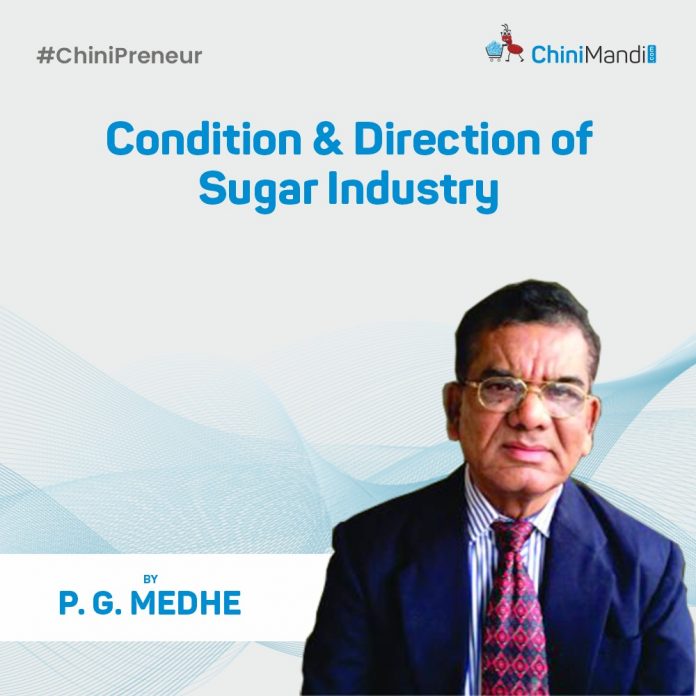The sugar industry in India has evolved significantly since its inception in the 1930s. Initially, the industry was limited in scope and scale, but over the decades, it has grown to become the second largest agro-based industry in the country, next to textiles. The sugar industry plays a pivotal role in the socio-economic development of rural India, providing livelihoods to millions of farmers and workers. According to recent statistics, India is one of the largest producers of sugar globally, contributing approximately 20% of the world’s sugar production. The industry’s growth has been marked by technological advancements, improved agricultural practices, and the establishment of numerous sugar mills across the country.
Historical background:
Since the 1930s, the sugar industry in India has undergone significant transformation
1)- 1930s-1950s :
The initial phase saw the establishment of a few sugar mills, primarily in Uttar Pradesh and Maharashtra. The industry was characterized by limited production and traditional agricultural practices.
2) – 1960s-1980s :
The Green Revolution brought technological advancements and improved agricultural practices, leading to increased sugarcane yield and production. The number of sugar mills grew, and the industry’s contribution to the economy became more pronounced.
3) – 1990s-Present :
Liberalisation and economic reforms further boosted the sugar industry. Private investment increased, and the industry saw the adoption of modern technologies and efficient production processes. Today, India is one of the leading sugar producers globally, with a well-established network of sugar mills across various states.
Importance of the Sugar Industry
1. Economic Impact :
– The sugar industry is a significant contributor to India’s GDP, providing a stable source of income for millions of farmers.
– Enhanced purchasing power of farmers, fueled by the industry’s growth, stimulates demand across various sectors, driving overall economic growth.
2. Socio-Economic Development :
– The sugar industry serves as a catalyst for socio-economic development in rural areas. The establishment of sugar mills leads to the development of infrastructure such as roads, schools, and healthcare facilities.
– By generating employment for millions, the industry uplifts rural communities and reduces poverty levels. Priority sector status can amplify these benefits by ensuring better financial support and stability.
3. Industrial Growth :
– The sugar industry is closely linked to several other industries through its by-products such as ethanol, molasses, and bagasse. Ethanol production, for example, is crucial for the biofuel industry, which can reduce the country’s dependency on imported fuels.
– Bagasse, a by-product of sugarcane, is used for electricity generation, contributing to renewable energy efforts. Supporting the sugar industry can thus have a positive ripple effect on multiple sectors.
4. Educational Advancements :
– The economic stability provided by the sugar industry allows families in rural areas to invest in education. Better financial conditions mean that children can afford to attend schools and pursue higher education, leading to improved literacy rates and educational outcomes.
– Sugar mills often contribute to social infrastructure by funding schools and educational programs, directly benefiting local communities.
5. Overall Economic Development :
– The cumulative effect of increased purchasing power, employment generation, and improved infrastructure leads to comprehensive economic development. Enhanced demand in the economy stimulates industrial growth, furthering the nation’s economic progress.
BENEFITS OF PRIORITY SECTOR:
Including the sugar industry in the priority sector status category can have several significant benefits:
1. Economic Stability :
The sugar industry provides a stable source of income for millions of farmers and workers. By giving it priority status, financial institutions can offer better credit facilities, ensuring that farmers and mill owners have access to necessary funds for operations and expansion.
2. Employment Generation :
The sugar industry is labor-intensive and provides employment to a large number of people, especially in rural areas. Priority sector status can help in creating more jobs and improving livelihoods.
3. Infrastructure Development :
The establishment of sugar mills often leads to the development of infrastructure such as roads, transportation networks, and irrigation systems. This can benefit the entire rural region and improve overall economic conditions.
4. Market Opportunities :
Sugar is a staple commodity with consistent demand. Priority sector status can help in stabilizing prices and ensuring that farmers have a reliable market for their produce.
5. Value Addition :
The sugar industry produces by-products like ethanol, molasses, and bagasse, which can further contribute to farmers’ income streams. Financial support can help in promoting these value-added products.
6. Social Development :
Improved economic conditions often lead to better access to education, healthcare, and other social services in rural areas. This can contribute to overall social development and reduce poverty levels.
7. Technological Advancements :
Priority sector status can encourage investments in modern agricultural practices and technology, leading to increased productivity and efficiency in farming practices.
LIST OF THE INDUSTRIES INCLUDED IN PRIORITY SECTOR CATEGORIES:
The Reserve Bank of India (RBI) has identified several industries as part of the Priority Sector Lending (PSL) to ensure adequate flow of credit to these sectors. Here’s a list of the key industries included in the priority sector:
1. Agriculture : Financing for crop production, plantation, and allied activities.
2. Micro, Small, and Medium Enterprises (MSMEs) : Loans to small businesses and industries.
3. Export Credit : Financing for exporters to promote international trade.
4. Education : Loans for educational institutions and students.
5. Housing : Affordable housing loans for economically weaker sections and low-income groups.
6. Social Infrastructure: Financing for hospitals, educational institutions, and other social infrastructure projects.
7. Renewable Energy : Loans for projects related to renewable energy sources like solar, wind, and biomass.
8. Weaker Sections : Loans to SC/ST, women, and other economically weaker sections.
These sectors are crucial for the overall development of the economy and ensuring inclusive growth.
The Essential Commodities Act and Sugar Industry
The Essential Commodities Act, 1955 empowers the government to regulate the production, supply, and distribution of certain commodities, including sugar, to ensure their availability at fair prices. This Act covers various aspects of the sugar industry, such as:
– Production : Regulating the production of sugar to ensure sufficient supply.
– Sale and Distribution : Controlling the sale and distribution to maintain price stability.
– Export and Import : Managing the export and import of sugar to balance domestic supply and demand.
– Stock Availability : Monitoring stock levels to prevent hoarding and ensure availability.
Priority Sector Categories
The Priority Sector Lending (PSL) guidelines require banks to allocate a certain percentage of their lending to sectors considered vital for the economy, such as agriculture, small-scale industries, and housing.
Including the sugar industry in the PSL list would mean:
– Increased Access to Credit : Sugar mills and related businesses would have easier access to loans and financial support.
– Support for Farmers : Ensuring timely payments to sugarcane farmers and promoting sustainable agricultural practices.
– Economic Stability: Strengthening the sugar industry’s contribution to the economy, ensuring stable prices, and supporting rural livelihoods.
Incorporating the sugar industry into the Priority Sector Categories would provide significant benefits, including increased financial support, improved farmer welfare, and overall economic growth. This move would align with the existing regulatory framework under the Essential Commodities Act and further strengthen the industry’s role in the economy.
LOOKING TOWARDS ABOVE DETAILED EXPLANATION AND LIST OF PRIORITY SECTOR CATEGORIES, SUGAR INDUSTRY IS A TOTALLY ELIGIBLE TO BE INCLUDED IN PRIORITY SECTOR BEING BELONGS TO AGRICULTURE SECTOR:
The sugar industry plays a pivotal role in the socio-economic development of rural India, contributing significantly to employment and income generation. Despite its integral connection to the agriculture sector, which is already included in the Priority Sector Lending (PSL) by the Reserve Bank of India (RBI), the sugar industry itself has not yet been included.
Including the sugar industry in the PSL could have several benefits:
1. Enhanced Financial Support:
Providing easier access to credit would help sugar mills modernize and expand their operations, leading to increased efficiency and productivity.
2. Boost to Rural Economy:
The sugar industry supports a large number of farmers and rural workers. Increased financial support would lead to better income distribution and improved living standards in rural areas.
3. Self-Sufficiency and Export Potential:
With better financial support, the sugar industry can achieve self-sufficiency in domestic sugar consumption and eve explore export opportunities, contributing to the country’s trade balance.
4. Sustainable Practices:
Financial support can also encourage the adoption of sustainable and environmentally friendly practices in sugar production, benefiting both the industry and the environment.
Given its critical role in agriculture and rural development, inclusion in the PSL would not only strengthen the sugar industry but also contribute to the overall development of rural India.
Conclusion
Hence, being sugar industry has played a crucial role in shaping India’s rural economy and continues to be a vital contributor to the nation’s growth and totally relates to Agriculture sector, controlled under the provisions of the Essential Commodity Act, it is fully eligible for inclusion in Priority Sector Categories. By including the sugar industry in the priority sector status category, we can ensure sustained development, better financial support, and a positive impact on various socio-economic aspects. This strategic move will not only benefit the farmers and workers directly involved in the industry but also contribute to the overall economic progress of the country.
P.G. Medhe is the former Managing Director of Shri Chhatrapati Rajaram Sahakari Sakhar Karkhana Ltd and sugar industry analyst. He can be contacted at +91 9822329898.












